Vehicles in Biology
Overview
In biology, vehicles refer to the carriers or means by which substances, such as nutrients, hormones, and other molecules, are transported throughout the body. The human body employs different vehicles for the transportation of various substances, and these vehicles play crucial roles in maintaining homeostasis and supporting various physiological functions.
Types of Vehicles
There are several types of vehicles involved in biological transportation:
- Blood: The circulatory system uses blood as the primary vehicle for transporting oxygen, nutrients, hormones, and waste products throughout the body.
- Cell Membranes: Within cells, various molecules are transported across cell membranes using specialized transport proteins and vesicles.
- Lymphatic System: Lymph is a vehicle that transports fats, immune cells, and other substances from the tissues to the bloodstream.
- Neurotransmitters: Nerve cells use neurotransmitters as vehicles to transmit signals across synapses.
- Phloem in Plants: In plants, the phloem serves as a vehicle for transporting sugars and other organic compounds from photosynthetic tissues to non-photosynthetic tissues.
Transport Mechanisms
The transportation of substances within the body involves various mechanisms, including:
- Diffusion: The passive movement of substances from an area of high concentration to an area of low concentration.
- Active Transport: The movement of substances against their concentration gradient, requiring energy in the form of ATP.
- Endocytosis and Exocytosis: The processes by which cells take in and release large molecules, respectively, via vesicles.
- Circulatory System: Blood is propelled through the body by the pumping action of the heart, facilitating the distribution of substances to various tissues and organs.
Study Guide
When studying the topic of vehicles in biology, consider the following key points:
- Understand the role of blood as a primary vehicle for transporting substances in the human body, including the functions of plasma, red blood cells, white blood cells, and platelets.
- Compare and contrast passive transport (e.g., diffusion) and active transport mechanisms in biological transportation.
- Examine the importance of cell membranes in regulating the movement of substances into and out of cells.
- Explore the role of the lymphatic system in transporting fats and maintaining immune function.
- Consider the significance of vehicles in plant biology, particularly the role of phloem in transporting organic compounds.
- Discuss the transportation of neurotransmitters in nerve cells and their role in signal transmission.
◂Biology Worksheets and Study Guides High School. Genetics and heredity II
Worksheet/Answer key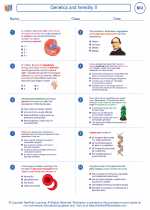 Genetics and heredity II
Genetics and heredity II  Worksheet/Answer key
Worksheet/Answer key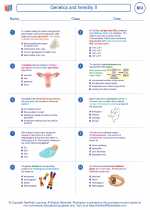 Genetics and heredity II
Genetics and heredity II  Worksheet/Answer key
Worksheet/Answer key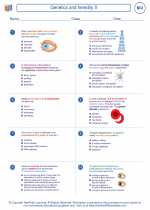 Genetics and heredity II
Genetics and heredity II  Vocabulary/Answer key
Vocabulary/Answer key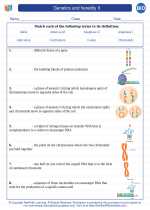 Genetics and heredity II
Genetics and heredity II  Vocabulary/Answer key
Vocabulary/Answer key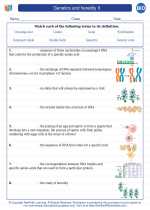 Genetics and heredity II
Genetics and heredity II  Vocabulary/Answer key
Vocabulary/Answer key Genetics and heredity II
Genetics and heredity II  Vocabulary/Answer key
Vocabulary/Answer key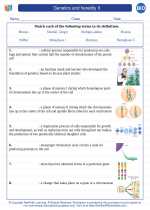 Genetics and heredity II
Genetics and heredity II  Vocabulary/Answer key
Vocabulary/Answer key Genetics and heredity II
Genetics and heredity II  Vocabulary/Answer key
Vocabulary/Answer key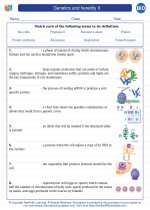 Genetics and heredity II
Genetics and heredity II  Vocabulary/Answer key
Vocabulary/Answer key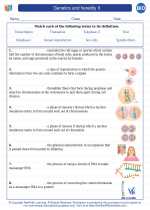 Genetics and heredity II
Genetics and heredity II 

 Worksheet/Answer key
Worksheet/Answer key
 Worksheet/Answer key
Worksheet/Answer key
 Vocabulary/Answer key
Vocabulary/Answer key
 Vocabulary/Answer key
Vocabulary/Answer key
 Vocabulary/Answer key
Vocabulary/Answer key
 Vocabulary/Answer key
Vocabulary/Answer key
 Vocabulary/Answer key
Vocabulary/Answer key
 Vocabulary/Answer key
Vocabulary/Answer key
 Vocabulary/Answer key
Vocabulary/Answer key

The resources above cover the following skills:
LIFE SCIENCE (NGSS)
Heredity: Inheritance and Variation of Traits
Students who demonstrate understanding can:
Ask questions to clarify relationships about the role of DNA and chromosomes in coding the instructions for characteristic traits passed from parents to offspring.